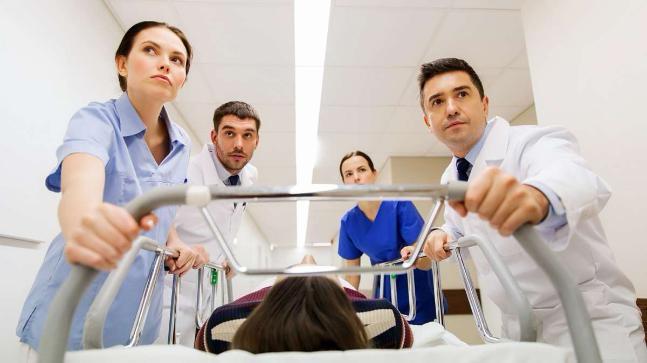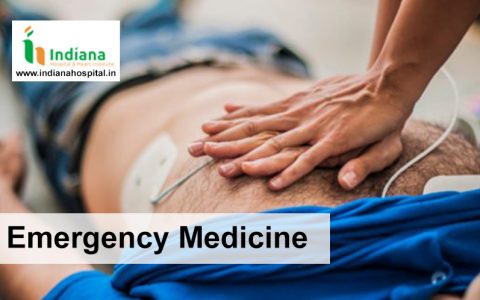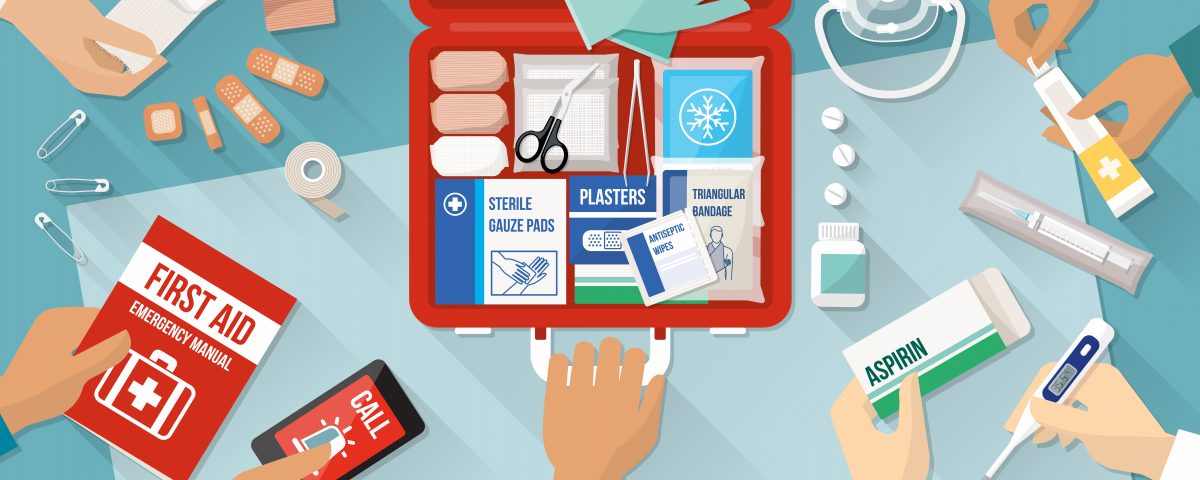Medical Emergency and Responses | Indiana Hospital & Heart Institute

Learn more about common medical emergency and immediate care that we should take.

Every one of us had or will face an emergency at least once in a lifetime. Be it accidents or other medical emergencies, the situation can be worse and even fatal. But sometimes a timely intervention can save lives. As a human being and social animal, we all are obliged to help others in the time of crisis, even if the other person is a random stranger. After all, life is much worth of it, you know. But often it happens that, we don’t know how to react to specific kind of situations and a silly mistake can make things worse than before. That’s why it is important to know how to deal with medical emergencies and the first aid procedures. Before moving to specific situations, there are some common rules or approaches to be taken towards a medical emergency
- Stay Calm
This is the basic rule of handling a medical emergency or rather any sort of emergency you face in your life. And it is the most difficult one. The first instinct of any human being who faces a difficulty is panic. Know that panic and stress won’t do any good. Conversely, it would make it more difficult. At a fear-strike state, our brains lost the ability to think clearly and rationally. A split-second decision can make it or break it and hence we need to think clearly and make decisions.
- Don’t be a self-proclaimed doctor
The proverb says ‘Half knowledge is dangerous than ignorance’ which is true especially in medical emergencies. The half knowledge on first aids and treatments can go wrong. That is also, why it is important to learn about correct first aid procedures.
- Seek the help of Paramedics
Often we think that we have it in control, but by the time we realize that it is not, it will be too late. It is okay to seek the help of paramedics/police/emergency service providers for help. Even if when they arrive and the situation is already in control, it is okay. They would rather arrive, see the person safe than arriving late, and see situation had blown out of their hand. Also, they have proper training and expertise in handling medical emergency and can control the damage.
Now that we know the ground rules, let’s see how to handle specific situations.

- Accident
This is the most common medical emergency that we all face. The very first step is to inform the paramedics. There are a few things we can do while the getting them to a nearby hospital.
- Look for the position of the person – Understand if the person is responsive or unresponsive. Check for any obstruction in the mouth that may cause choking or breathing problem. Remove them first. If the person is unresponsive, perform immediate life-saving techniques like CPR. Keep airway open, and don’t cover ears.
- If something pierced the body, never try to remove it. It may cause damage to other body parts or rupture more veins.
- If you find the head/neck in an awkward position, there might be spinal injuries. In that case, don’t try to move them, if there is no immediate danger to life.
- Try to stop the loss of blood – Covering the open wound with a piece of cloth or towel won’t immediately stop bleeding but we can prevent too much loss of blood. Often, the life is put into danger because of loss of blood, even if the accident isn’t that severe.
- Broken legs/arms – mishandling of broken legs/arms can cause a permanent So try keeping them intact or tie it with something like a wooden block so that it won’t move a lot while moving the person.
- Keep neck and back straight while transporting.
- Fire accidents
Fire accidents are another difficult situation to handle.
- If the clothes are still on fire, get them to a horizontal position (even tripping them here is fine), cover them with a blanket and roll on the floor.
- Check for the proper breathing, any other injuries.
- Apply running cold water on the burns. If running water isn’t available, use damped clothes. Do not use Ice or any other things to cool. This process relieves the pain. The maximum time for the cooling process is 20 minutes. Do this process considering the degree of burn. If the burn is severe, getting them to the hospital will be more helpful than doing the cooling.
- Do not burst any blisters. This may cause further loss of blood and fluids.
- Do not apply ointments without doctor’s instruction.
- Cover them with a freshly washed cloth, and get them to a nearby hospital immediately.
- Heart Attack
With the number of increasing heart patients, a heart attack is another medical emergency that always happens. Sometimes people misunderstood heart attack for panic attacks/gas trouble etc. By giving them proper immediate help, we might save a life. A prolonged discomfort on chest, pain etc. may be symptoms of heart attack. If you notice a person having a heart attack,
- Loosen any tight clothing of the person.
- Make the person sit or rest. Try to provide proper ventilation so that he/she can properly breathe.
- Ask if the person have any medication. Nitroglycerin can be given if the doctor is prescribed.
- Chewing aspirin can create some sort of relaxation
- Do not give any other medicines to go symptoms away. Like painkillers may reduce pain for a moment, but it isn’t good. Proper medication is needed.
- If the person goes unresponsive, try giving them CPR.
- Snake poison
This medical emergency is not that common as the previous ones, however, can be fatal if we don’t take proper care. The symptoms can be redness and swelling, difficulty in breathing, nausea, blurred vision, sweating etc.
- A popularly believed first aid method is using a tourniquet. But it is proved that it won’t help.
- Do not apply cold compress like ice or water on the bite.
- If the wound is below the heart, lie down the person. Don’t try to move him much as too much movement may cause spreading of venom.
- Cover wound with a loose bandage.
- Remove jewelry, clothing or shoes in the wounded area.
- Try to take a note of the appearance of the snake, as it will help in proper treatment.
- Try to keep the person calm. The more panicked the person is the faster venom spreads.
I hope this article helped you to know more about the medical emergency and immediate response.
Indiana hospital and heart institute are one of the top healthcare centers in Mangalore, Karnataka. We offer the latest medical service equipped with advanced technology and a mind of compassion. Our specialized departments with expert doctors are always at your service. Well trained paramedics team is available 24×7 for emergency services.
